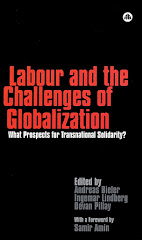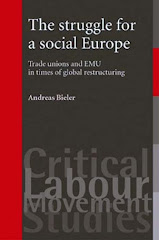Current Con-Dem government plans to cut back funding for further and higher education in the UK are an unprecedented attack on the right to access to higher education. This attack affects students and members of staff alike, but co-operation between both sides is neither secured nor automatic. Anybody interested in successful resistance will have to think carefully about how to co-ordinate the various struggles.
Parliament has just passed the law which allows Universities to increase tuition fees up to £9000 per year. This constitutes a trebling of current tuition fees levels. The increase in tuition fees is supposed to make up for the estimated 80% cut in central teaching grants by the government to Universities. Due to the various student protests including University occupations – see, for example, the developments at Nottingham University – this is currently the most debated topic in higher education. The attack on members of staff is less well covered. And yet, the cuts faced by them are not less severe.
The University and College Union (UCU) organising members of staff in further and higher education institutions estimates that the total jobs either at risk or already lost as a result of government cut-backs amounts to 6211. This loss of jobs is combined with a derisory pay offer of 0.4 per cent, which signifies a cut in real income considering current inflation levels of just above 3 per cent.
Equally severe is the attack on the USS pension scheme for members of staff in higher education. Amongst other provisions, the employers’ proposal envisages the introduction of a two-tier pension system, in which new entries to the profession would no longer be part of the final salary pension scheme, but a ‘career average revalued earnings’ scheme.
Nevertheless, while both students and members of staff are under attack, their co-operation is not assured. Some members of staff may argue that considering the necessity of cuts in order to clear the national debt, the increase in tuition fees is the only way to preserve an internationally competitive higher education sector in the UK. Students too may not automatically support members of staff in their struggles against cuts. Ballots on industrial action are currently prepared by UCU. When lecturers go on strike or participate in action short of strike including an assessment boycott, students may oppose these steps as they fear for their degree and timely graduation in June next year. The government is likely to use this kind of arguments to drive a wedge between students and lecturers.
How to overcome these potential difficulties? First, it needs to be pointed out that these changes intensify the process of commodification by subjecting education to the interests of the market. Access to higher education will become a privilege for those who can afford to pay for it. Resisting the commodification of higher education and preserving it as a general public good can unite the struggles by students and members of staff. Second, it will be essential to point out that there are alternatives to the current cut-backs in public spending. As is widely reported in the press, there are £120 billion of evaded, avoided and uncollected taxes. Moreover, the richest 1,000 people in Britain increased their wealth last year by a staggering £80 billion, exactly the sum the government intends to save through drastic cuts in the public sector budget in general, and the further and higher education budget in particular. Clearly, rather than taxing the rich, the government has decided to attack the most vulnerable groups in society. As current student protests and the support by UCU indicate, these developments are not unchallenged. Preserving the unity between members of staff and students is feasible and, if achieved, may well provide the basis for successful resistance.
Prof. Andreas Bieler
Professor of Political Economy
University of Nottingham/UK
Andreas.Bieler@nottingham.ac.uk
Personal website: http://www.nottingham.ac.uk/~ldzab
10 December 2010
The purpose of this blog is to provide analytical commentary on formal and informal labour organisations and their attempts to resist ever more brutal forms of exploitation in today’s neo-liberal, global capitalism.
Search This Blog
About Me

- Andreas Bieler
- Andreas Bieler is Professor of Political Economy at the University of Nottingham/UK. (@Andreas_Bieler)










